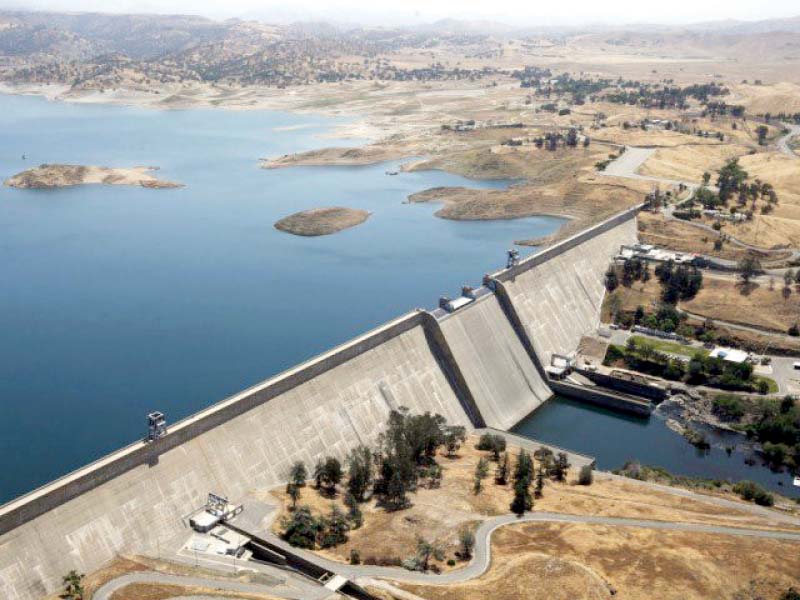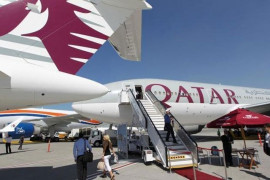
The Executive Committee of the National Economic Council (Ecnec), the highest project approving authority, included the Tangir hydropower project in the Diamer-Bhasha dam and approved the revised cost of the project at Rs479.7 billion, according to the finance ministry.
The change in the scope of one of the priority projects, after only six months, highlights the lack of planning, which often causes cost overruns.
It was the first Ecnec meeting under the Pakistan Tehreek-e-Insaf (PTI) government, which approved seven schemes costing Rs659 billion. The net increase in cost was Rs185 billion.
The Diamer-Bhasha dam project had already been approved at Rs474-billion cost in April this year. Headed by Finance Minister Asad Umar, the council also approved the Peshawar Metro Bus project at 20% higher cost of Rs66.4 billion.
On April 17, 2018, the last Pakistan Muslim League-Nawaz (PML-N) government had approved the construction of Diamer-Bhasha dam at an estimated cost of Rs474 billion, aimed at increasing the country’s depleting water storage capacity. While approving the dam project, former prime minister Shahid Khaqan Abbasi had shot down the idea of building a small dam during the construction of the mega project.
However, now the Water and Power Development Authority (Wapda) has got PC-I of the project modified by including 15MW power generation capacity. This has increased the project cost by Rs6 billion to Rs480 billion.
Land issues have also yet to be sorted out before starting construction of the dam, according to officials. The land acquisition process is planned to be completed by 2021.
The project will be completed by seeking foreign loans of Rs154 billion and providing Rs238 billion from the budget. The remaining amount will be raised by Wapda from its own resources.
Ecnec approved the revised cost of Peshawar Sustainable Bus Rapid Transit Corridor at Rs66.437 billion, marking June 2019 as the stipulated date for project completion.
Pakistan needs $9b for running domestic economy: Umar
The revised cost includes Rs53.3 billion worth of financing by the ADB and AFD. Foreign loans have been linked with the condition that no inquiry or investigation is pending at the level of FIA and NAB or any other level nor any legal proceedings against the project authorities are under way.
The Peshawar Metro project had been approved in July 2017 at a cost of Rs49.4 billion, which in a span of 15 months has been increased by 20%.
An additional 2.2km elevated structure has to be built to avoid areas under the control of the military, Ecnec was informed. Total construction cost of different packages has gone up from Rs31.6 billion to Rs48.8 billion.
The cost of fleet and bike-sharing facilities has been jacked up from Rs9.4 billion to Rs11.5 billion. But the overhead cost has been lowered from Rs8.4 billion to Rs6.2 billion.
Ecnec approved the project for the evacuation of power from Suki Kinari, Kohala and Mahl hydropower projects at a cost of Rs80 billion. The ADB will provide Rs46.8 billion in loan, while the NTDC will arrange Rs33.1 billion.
The scheme will be completed by 2023. A 500kv transmission network will be established to evacuate electricity from the three power plants being constructed under the China-Pakistan Economic Corridor (CPEC).
Ecnec approved the rehabilitation of Dargai hydroelectric power station at a cost of Rs4.1 billion. The project has been initiated to rehabilitate the hydropower plant to add 2MW more electricity to the system.
Pakistan should shift to efficiency-driven economy
The meeting approved the Balochistan Water Resources Development Project worth Rs16.5 billion. Ecnec also approved the establishment of Pakistan Space Centre at a cost of Rs29.5 billion. The scheme will be completed in three and a half years.
Moreover, the council approved the Sindh Solar Energy Project at a cost of Rs12.9 billion. The project is aimed at supporting the scale-up of solar power in Sindh and increasing access to electricity. The project will also improve energy security and help fulfill Pakistan’s international commitments on climate change.
Ecnec directed the Power Division to come up with a report covering all facets relating to power production, its effective evacuation and transmission and distribution.
The report would help set a direction for undertaking power projects in the future.
Published in The Express Tribune, November 15th, 2018.
Like Business on Facebook, follow @TribuneBiz on Twitter to stay informed and join in the conversation.






1736402259-0/sidra--(47)1736402259-0-270x192.webp)








1736332856-0/Untitled-design-(20)1736332856-0-270x192.webp)







COMMENTS
Comments are moderated and generally will be posted if they are on-topic and not abusive.
For more information, please see our Comments FAQ